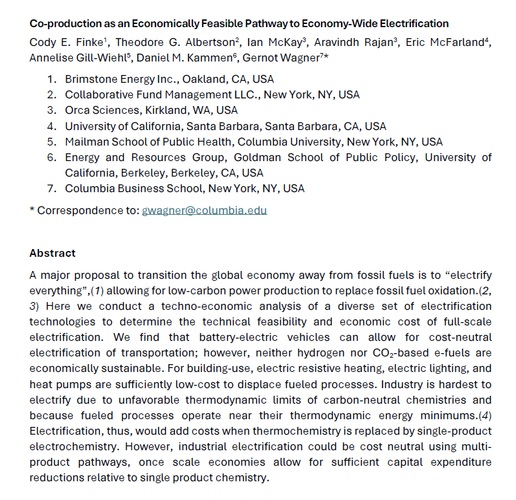Breaking the "Believe in Climate Science" = "Big Government" association
Facts are polarizing, and are easily misused. That, in short, is the conclusion of the latest paper by Dan Kahan et al in "The Polarizing Impact of Science Literacy and Numeracy on Perceived Climate Change Risks," expertly reviewed in "Another nail in the coffin of Enlightenment reason" by David Ropeik for Bigthink.
The conclusion Ropeik draws seems clear: Now that we know that facts are misconstrued by those trying to further their own agenda, let's use that knowledge when trying to talk about facts in the first place. In other words, put them in context, look to culture, norms, psychology, group behavior and all the other messy things that make global warming such an intractable problem.
We—as in those worried about global warming and wanting to do something about it— also need to keep in mind how our own actions and words are perceived. It's not so much that climate deniers don't actually like the science. It's that climate deniers think they don't like the inevitable conclusion: a big government take-over, a move to zero growth, a change of the American way of life as we know it—in other words all the things the "Left" seems to think are indeed necessary to make the change, epitomized by Naomi Klein's take on "Capitalism vs. the Climate." No wonder the "Right" believes the "Left" has an insidious agenda, using climate policy as an excuse redistribute wealth and re-create society in their own image.
The problem with Klein's take is that it's smart, insightful, but only half right:
Her assessment of the obstacles to solving climate change — from ideology to misplaced faith in green consumerism — are exactly right. And she’s right that fixing this problem means changing how the world does business.
But Klein is wrong in her more serious assertion...that we can save the planet only if we abandon capitalism. ...
The deeper problem is not that our markets are too free; it’s that they are woefully rigged in favor of pollution.
In other words, it's about harnessing market forces to address climate change.
I'm under no illusion that saying as much, as many from Robert Stavins on down have been trying to do for years, will do the trick all by itself.
But—and that's the big but here—all of that market-centric language—as much as it pains liberals to embrace it—may well be the best response to Kahan et al's powerful psychological research. It's about breaking all-too-simple alliances, factions, and associations.
If "Believe in Climate Science" = "Big Government" in some (most?) people's minds, then yes, increased knowledge about climate science will turn off those who strongly believe in small government.
If "Believe in Climate Science" = "Better-Functioning Markets" = "Less Socialism" and even = "Leaner, Meaner, Better Prepared Military," alliances may well begin to change—slowly, perhaps too slowly, but still. It seems to be the only answer we have.


